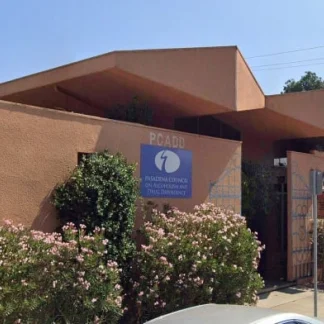Dedicato Treatment Center - Outpatient
Dedicato Treatment Center - Outpatient is a private rehab located in Pasadena, C...
Pasadena Council on Alcohol and Drug Dependency offers outpatient treatment for individuals with alcohol and/or substance addiction. The program includes 12-step methods, individual counseling, group therapy, aftercare support and more. Pasadena Council on Alcohol and Drug Dependency is located at Pasadena, California.
Contact us for more information: (626) 795-9127

Connect with Pasadena Council on Alcohol and Drug Dependency by calling their admissions team directly.
(626) 795-9127 Website Get DirectionsGroup therapy is any therapeutic work that happens in a group (not one-on-one). There are a number of different group therapy modalities, including support groups, experiential therapy, psycho-education, and more. Group therapy involves treatment as well as processing interaction between group members.
In individual therapy, a patient meets one-on-one with a trained psychologist or counselor. Therapy is a pivotal part of effective substance abuse treatment, as it often covers root causes of addiction, including challenges faced by the patient in their social, family, and work/school life.
In individual therapy, a patient meets one-on-one with a trained psychologist or counselor. Therapy is a pivotal part of effective substance abuse treatment, as it often covers root causes of addiction, including challenges faced by the patient in their social, family, and work/school life.
Dedicato Treatment Center - Outpatient is a private rehab located in Pasadena, C...
Pacific Clinics – Asian Family Center provides dual diagnosis and drug addiction...
Dedicato Treatment Center is located at the foothills of the San Gabriel Mountai...
Grandview Foundation is an alcohol and drug rehab in Pasadena, California. They ...